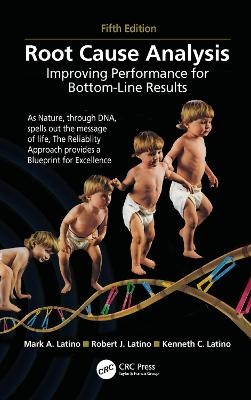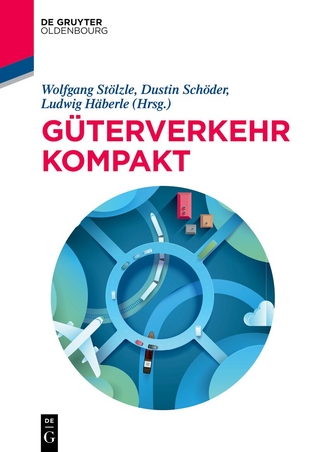
Root Cause Analysis
CRC Press (Verlag)
978-1-138-33245-4 (ISBN)
This book comprehensively outlines what a holistic and effective Root Cause Analysis (RCA) system looks like. From the designing of the support infrastructure to the measuring of effectiveness on the bottom-line, this book provides the blueprint for making it happen. While traditionally RCA is viewed as a reactive tool, the authors will show how it can be applied proactively to prevent failures from occurring in the first place. RCA is a key element of any successful Reliability Engineering initiative. Such initiatives are comprised of equipment, process and human reliability foundations. Human reliability is critical to the success of a true RCA approach.
This book explores the anatomy of a failure (undesirable outcome) as well as a potential failure (high risks). Virtually all failures are triggered by errors of omission or commission by human beings. The methodologies described in this book are applicable to any industry because the focus is on the human being's ability to think through why things go wrong, not on the industry or the nature of the failure. This book correlates reliability to safety as well as human performance improvement efforts. The author has provided a healthy balance between theory and practical application, wrapping up with case studies demonstrating bottom-line results.
Features
Outlines in detail every aspect of an effective RCA ‘system’
Displays appreciation for the role of understanding the physics of a failure as well as the human and system’s contribution
Demonstrates the role of RCA in a comprehensive Asset Performance Management (APM) system
Explores the correlation between Reliability Engineering and Safety
Integrates the concepts of Human Performance Improvement, Learning Teams, and Human Error Reduction approaches into RCA
Mark A. Latino is President of Reliability Center, Inc. (RCI). Mark came to RCI after 19 years in corporate America. During those years, a wealth of reliability, maintenance, and manufacturing experience was acquired. He worked for Weyerhaeuser Corporation in a production role during the early stages of his career. He had an active part in Allied Chemical Corporation’s (now Honeywell) Reliability Strive for Excellence initiative that was started in the 1970s to define, understand, document, and live the Reliability culture until he left in 1986. Mark spent 10 years with Philip Morris primarily in a production capacity that later ended in a Reliability Engineering role. Mark is a graduate of Old Dominion University and has a bachelor’s degree in business that focused on production and operations management. Robert J. Latino is CEO of Reliability Center, Inc. (RCI). RCI is a reliability consulting firm specializing in improving equipment, process, and human reliability. He received his bachelor’s degree in business administration and management from Virginia Commonwealth University. Robert has been facilitating RCA, FMEA and Opportunity Analyses with his clientele around the world for over 34 years, and has taught over 10,000 students in the PROACT® methodology. He is co-author of numerous seminars and workshops on these topics as well as co-designer of the award winning PROACT® Investigation Management System. Robert is an author of Patient Safety: The PROACT Root Cause Analysis Approach and contributing author of Error Reduction in Healthcare: A Systems Approach to Improving Patient Safety, The Handbook of Patient Safety Compliance: A Practical Guide for Health Care Organizations and Nurse Communication: Safe Care, Positive Workplaces, & Rewarding Careers. Robert has also published a paper entitled, "Optimizing FMEA and RCA Efforts in Healthcare" in the ASHRM Journal and presented a paper entitled, "Root Cause Analysis Versus Shallow Cause Analysis: What’s the Difference?" at the NAHQ National Conference. He has been published in numerous trade magazines on the topic of reliability, FMEA, and RCA and is also a frequent speaker on the topic at domestic and international trade conferences. Robert has also applied the PROACT methodology to the field of Terrorism and Counter Terrorism via a published paper entitled, "The Application of PROACT RCA to Terrorism/Counter Terrorism Related Events." Kenneth C. Latino is an Asset Performance Management (APM) Product Manager with GE Digital. He has a Bachelor of Science degree in computerized information systems from Virginia Commonwealth University. He began his career developing and maintaining maintenance software applications in the continuous process industries. After working with clients to help them become more proactive in their maintenance activities, he began consulting and teaching industrial plants how to implement reliability methodologies and techniques to help improve the overall performance of plant assets. Prior to his current role at GE, Kenneth was the Reliability Engineering Manager at the WestRock paper mill in Covington Mill. Over the past few years, a majority of Kenneth’s focus has centered around developing reliability approaches with a heavy emphasis on Asset Performance Management (APM) with specific focus around failure elimination and Root Cause Analysis (RCA). In the course of his career, he has trained thousands of engineers and technical representatives on how to implement a successful RCA strategy at their respective facilities. He has co-authored two RCA training courses: one for engineers and another for hourly personnel. Kenneth is also co-software designer of the RCA software solution entitled the PROACT Investigation Management System. The PROACT solution is used by hundreds of companies around the world every day to understand the causes of failures to help eliminate/mitigate their reoccurrence.
1. Introduction to the PROACT Root Cause Analysis (RCA) Work Process. 2. Introduction to Root Cause Analysis. 3. Creating the Environment to Succeed. 4. Failure Classification. 5. Preserving Event Data. 6. Ordering the Analysis Team. 7. Analyzing the Data. 8. Communicating Recommendations & Findings. 9. Tracking for Bottom-Line Results. 10. Proactive Human Error Reduction Techniques (HERT). 11. The Role of RCA in Reliability and Safety. 12. RCA Investigation Management System. 13. Root Cause Analysis Case Histories.
| Erscheinungsdatum | 15.07.2019 |
|---|---|
| Zusatzinfo | 33 Tables, black and white; 138 Illustrations, black and white |
| Verlagsort | London |
| Sprache | englisch |
| Maße | 156 x 234 mm |
| Gewicht | 589 g |
| Themenwelt | Technik ► Maschinenbau |
| Wirtschaft ► Betriebswirtschaft / Management ► Logistik / Produktion | |
| Wirtschaft ► Betriebswirtschaft / Management ► Unternehmensführung / Management | |
| ISBN-10 | 1-138-33245-3 / 1138332453 |
| ISBN-13 | 978-1-138-33245-4 / 9781138332454 |
| Zustand | Neuware |
| Informationen gemäß Produktsicherheitsverordnung (GPSR) | |
| Haben Sie eine Frage zum Produkt? |
aus dem Bereich


